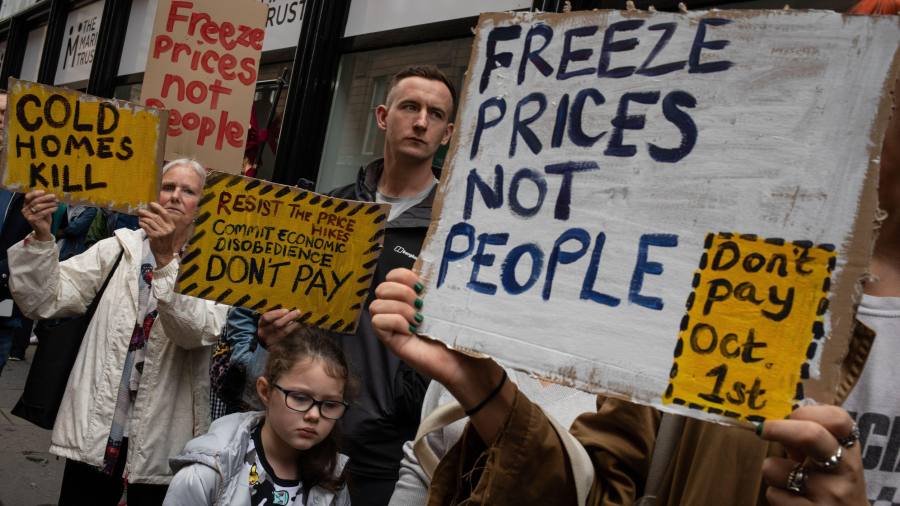Britain’s energy crisis will put at risk the health of thousands of children this winter, public health experts have said, as separate research predicted the deepest squeeze on living standards in a century.
Public health expert Professor Sir Michael Marmot warned of a looming “humanitarian crisis” and said many children would be affected by the respiratory impact of living in cold, damp housing, adding that more than half of households would be in fuel poverty in January.
Marmot’s warning came as the Resolution Foundation think-tank on Thursday forecast that 3mn people would be pushed into absolute poverty by a 10 per cent drop in income this and next year.
Energy regulator Ofgem last week announced that the average British household’s yearly energy bill would rise from £1,971 to £3,459 from October. The jump comes amid a wider and intensifying cost of living crisis driven by soaring inflation.
In its report, the UCL Institute of Health Equity, which Marmot leads, said a failure by government to act would have “dangerous consequences” for children because of the way damp, cold air affects the development of organs, increasing the risk of conditions such as hypothermia.
The IHE estimated that in 2020-21 10 per cent of excess winter deaths — which are higher in the UK than the northern European average — were the result of fuel poverty, and predicted that 55 per cent of households would be in fuel poverty by January, largely because of rising bills.
Professor Ian Sinha, consultant respiratory paediatrician at Alder Hey Children’s Hospital in Liverpool and a co-author of the IHE report, said he had “no doubt” that children would die.
He added that the hospital was spending £3,000 a time vaccinating babies for respiratory disease, “and yet we are going to send them home to the very circumstances which are going to make them ill in the first place”.
The hospital had already set up a dedicated clinic to help parents whose housing was unfit because of the cold and damp, he said.
In its report, the Resolution Foundation said soaring energy bills and double digit inflation would cause household disposable income to fall 5 per cent this year and by a similar amount in 2023.
This drop in income of 10 per cent over two years — equivalent to £3,000 for the typical household — would equate to the deepest squeeze on living standards in a century.
Lalitha Try, a researcher at the Resolution Foundation and co-author of its report, said “no responsible government could accept such an outlook” and called for “radical policy action”.
“We are going to need an energy support package worth tens of billions of pounds, coupled with increasing benefits next year by October’s inflation rate,” she added.
The think-tank predicted that 3mn more people would enter absolute poverty — which it defined as living on below 60 per cent of the median income after housing costs — over the next two years, taking the total to 14 million in 2023-24. It also forecast that child poverty would reach 33 per cent in 2026-27, the highest level since the 1990s.
Among other measures, both reports recommended the introduction of a “social tariff” for energy bills targeted at those on low incomes.
The government did not immediately respond to a request for comment.


